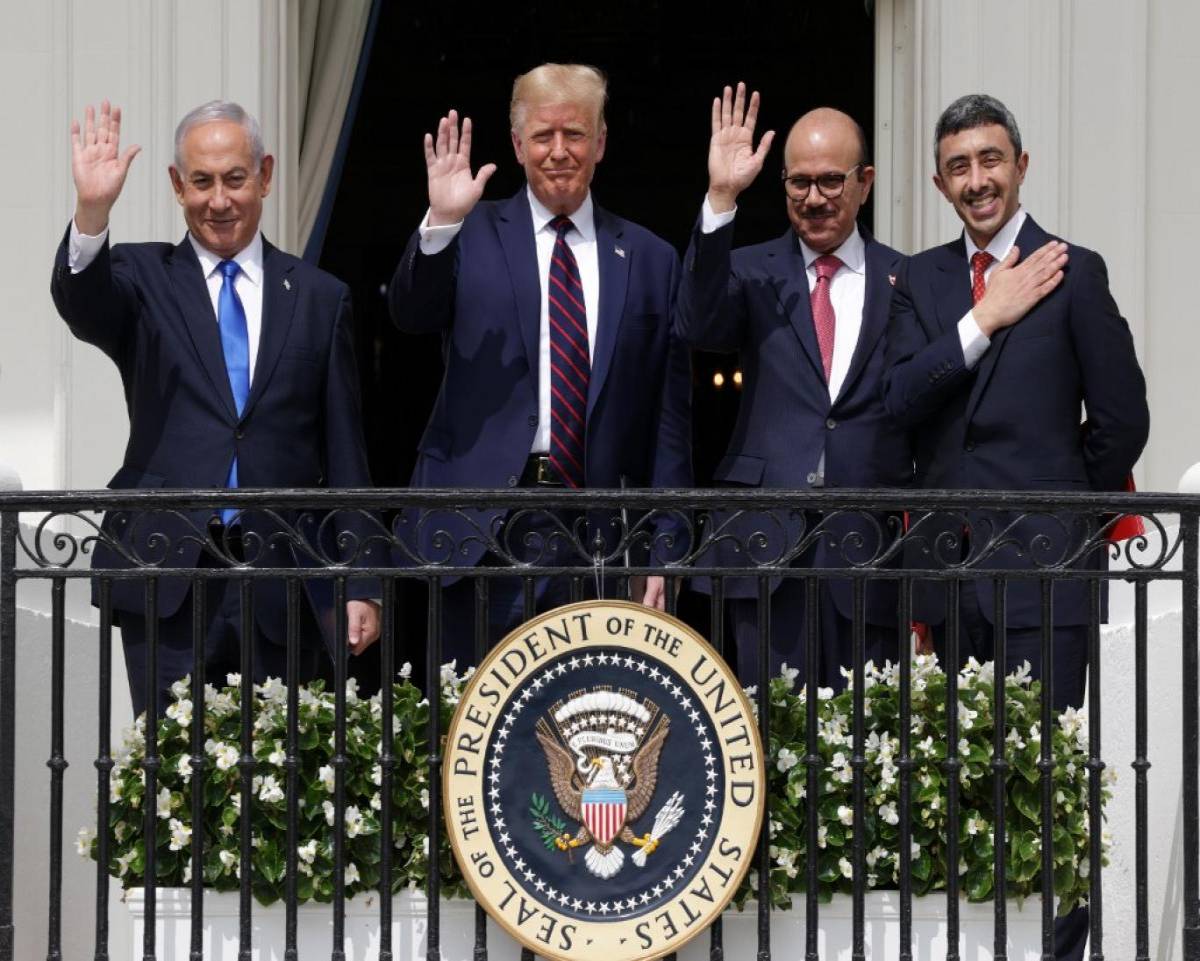1875 Views
The U.S. Is Building a Secret Muslim Army against Iran – And Israel Is Leading It
The Abraham Accords, signed in 2020 and 2021, marked a diplomatic turning point in the Middle East by normalizing relations between Israel and four Muslim-majority countries: the United Arab Emirates, Bahrain, Sudan, and Morocco. Spearheaded by the Trump administration, these agreements are now reportedly being actively expanded in 2025 to include the Republic of Azerbaijan and Central Asian nations such as Kazakhstan and Uzbekistan.
While largely symbolic due to existing informal ties with Israel, this initiative is deeply rooted in geopolitical calculations. Its aims include countering Iranian influence, formalizing Israeli relations, securing domestic political gains within the U.S., and limiting the sway of China and Russia across Eurasia.
Adding Muslim-majority countries that are geographically or strategically close to Iran—such as Azerbaijan—to the Abraham Accords is a calculated move to form a regional bloc capable of exerting pressure on the Islamic Republic. Azerbaijan, located between Russia and Iran, serves as a vital trade corridor linking Central Asia to the West. Bringing it into the Accords could restrict Iran’s access to these routes. The Caucasus and Central Asia are energy-rich regions crucial to global energy markets. By aligning these countries with Israel and the U.S., the Trump administration aims to isolate Iran both diplomatically and economically, undermining its regional proxy networks. This expansion serves as a mechanism to extend American and Israeli soft power and build a network capable of countering Iran’s influence in this resource-rich zone.
Moreover, Azerbaijan has long been one of Israel’s closest Muslim allies, with deep cooperation in security, oil, and intelligence. It supplies significant amounts of oil to Israel and participates in military technology exchanges. Kazakhstan also maintains economic ties with Israel and is recognized as a key oil supplier. Integrating these nations into the Abraham Accords would formalize and institutionalize these relations, potentially paving the way for deeper collaboration in trade, cybersecurity, and renewable energy. Reports indicate that this expansion focuses on reinforcing existing relationships rather than establishing new diplomatic ties, as these countries have already recognized Israel. Such formalization could strengthen trilateral partnerships involving the U.S., Israel, and these nations—mirroring the model seen with Morocco.
This expansion also aligns with America’s broader strategy to redefine a “moderate Islamic world” in contrast to Iran, often portrayed as an extremist state. This narrative appeals to American evangelical Christians, a vital Republican base, who see such alliances as fulfillment of religious prophecy and as safeguards for Israeli security. By promoting normalization with countries like Azerbaijan and Central Asian states, Israel also counters the narrative of its isolation in the Muslim world, while boosting its domestic political capital. Simultaneously, the U.S. projects itself as a leader promoting peace and tolerance, increasing its stature on the global stage.
Furthermore, the expansion of the Abraham Accords is a direct response to the growing influence of Iran, China, and Russia in Eurasia. Iran’s support for proxy groups and its economic ties in the region challenge U.S. interests. China’s Belt and Road Initiative has boosted its economic leverage in Central Asia through infrastructure investments, while Russia maintains influence through historic ties and energy deals.
By incorporating Azerbaijan and Central Asian countries into the Abraham Accords, the U.S. seeks to secure energy corridors and gain access to critical minerals such as uranium and lithium, abundant in the region.
The initiative also supports the "Middle Corridor," a trade route linking China to Europe that bypasses both Russia and Iran, thereby reinforcing America’s strategic position. This move sends a clear message to rival powers: the U.S. is actively working to maintain dominance in Eurasia.
Despite its strategic appeal, the expansion faces significant obstacles. The ongoing conflict between Azerbaijan and Armenia remains a major point of contention. Reports suggest that the U.S. may make a peace deal between these two nations a precondition for Azerbaijan’s inclusion. Additionally, the war in Gaza—with high civilian casualties and a worsening humanitarian crisis—has sparked global outrage, complicating efforts to bring more Muslim-majority countries into the fold. Saudi Arabia has repeatedly stated that it will not normalize relations with Israel without meaningful progress toward establishing a Palestinian state—highlighting the enduring sensitivity of the Palestinian issue. These challenges underscore the complexity of expanding the Accords in a region marked by competing interests and unresolved conflicts.
Expanding the Abraham Accords to include Azerbaijan and Central Asian nations offers strategic benefits to the U.S. and Israel, including increased regional influence and access to vital resources. However, this approach is fundamentally a geopolitical strategy aimed at containing Iran and limiting Chinese and Russian sway. By building an alliance that directly challenges Iran, the U.S. risks escalating regional tensions and potentially fueling further conflict. Iran may respond by intensifying support for its proxies or conducting assertive operations in strategic areas like the Strait of Hormuz, a critical chokepoint for global oil supply.
Moreover, this strategy aligns with America’s broader objective to push back against growing Chinese and Russian influence across Eurasia. By strengthening alliances in this region, the U.S. signals its intent to retain dominance in strategically vital territories—possibly resulting in a more polarized global landscape. Countries may be forced to pick sides, increasing the risk of proxy conflicts and economic sanctions. Sidestepping the Palestinian issue in favor of broader geopolitical goals only complicates the picture, especially amid the ongoing Gaza conflict, which threatens to radicalize and destabilize the region further.
In conclusion, while expanding the Abraham Accords may offer short-term strategic advantages, it carries the risk of fueling geopolitical tensions across the globe. The U.S. must balance its strategic objectives with the need for regional stability and address the Palestinian issue to avoid triggering destabilizing reactions. Without careful consideration of these dynamics, America’s approach could contribute to a more unstable and fragmented global order.
*Translated by Ashraf Hemmati from the original Persian article written by Amin Mahdavi

Comment
Post a comment for this article